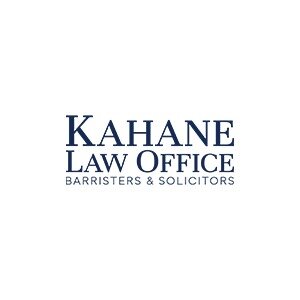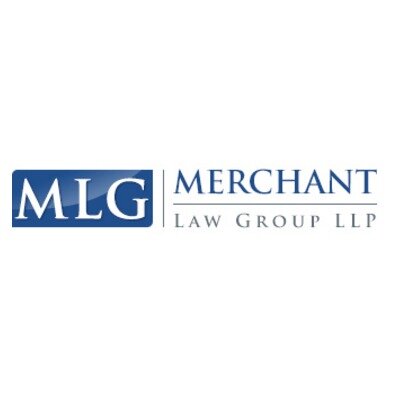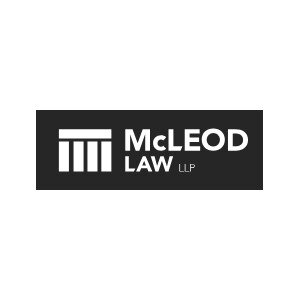Best Public-Private Partnerships (PPP) Lawyers in Calgary
Share your needs with us, get contacted by law firms.
Free. Takes 2 min.
List of the best lawyers in Calgary, Canada
About Public-Private Partnerships (PPP) Law in Calgary, Canada
Public-Private Partnerships (PPPs) are collaborative agreements between government entities and private sector companies to finance, build, operate, or maintain public infrastructure or services. In Calgary, Alberta, PPPs have become increasingly popular for delivering large projects such as highways, schools, hospitals, utilities, and public transit. These partnerships combine the resources, expertise, and efficiencies of the private sector with the regulatory oversight and public welfare goals of government agencies.
The legal framework for PPPs in Calgary is influenced by federal, provincial, and municipal laws and policies. Most PPP projects are structured around contractual agreements that clearly outline the roles and responsibilities of all parties involved, financial arrangements, performance measures, risk sharing, and dispute resolution mechanisms. Understanding the complexities of these legal agreements is crucial for anyone considering participation in a PPP.
Why You May Need a Lawyer
Given the complexity and long-term nature of PPP arrangements, legal guidance is often necessary to protect your interests and ensure project success. Common situations where legal advice is needed include:
- Drafting, negotiating, or reviewing PPP contracts.
- Understanding regulatory requirements and compliance obligations.
- Assessing and managing project risks and liabilities.
- Addressing financing structures and funding opportunities.
- Resolving disputes between public and private partners or with third parties.
- Ensuring proper procurement processes and bid compliance.
- Securing permits, licenses, and approvals from relevant authorities.
- Advising on changes in law, policy, or regulatory environments.
A knowledgeable PPP lawyer can help all parties navigate these challenges, minimizing potential conflicts and maximizing the long-term value of the partnership.
Local Laws Overview
PPP projects in Calgary are primarily governed by legal frameworks established at the federal, provincial, and municipal levels. Key considerations include:
- Alberta PPP Model: The province of Alberta has developed standard PPP models and guidelines which set out principles for project selection, procurement, risk allocation, financing, performance, and oversight.
- Procurement Rules: The Alberta Public Agencies Governance Act and the City of Calgary’s procurement policies set rules for competitive bidding, transparency, and fairness in vendor selection.
- Contract Law: Standard legal principles of contract law apply, including offer and acceptance, consideration, and remedies for breach.
- Regulatory Compliance: PPPs must comply with health and safety, environmental, labor, and building regulations as set by provincial and municipal authorities.
- Financing: PPP financing structures must adhere to applicable laws concerning public funding, private investment, and financial reporting.
- Dispute Resolution: PPP agreements usually include clauses that set out how disputes will be managed, often encouraging mediation or arbitration before litigation.
Legal professionals in Calgary who specialize in PPPs are familiar with these local laws and can help guide both public and private participants through the regulatory landscape.
Frequently Asked Questions
What is a public-private partnership in Calgary?
A public-private partnership in Calgary is a formal arrangement between one or more government entities and private sector companies to deliver public infrastructure or services. The private partner often assumes greater project risks and responsibilities, while the public side ensures accountability and public interest.
How are PPP projects selected in Calgary?
PPP projects are selected based on criteria such as value for money, potential to transfer risks to the private sector, project complexity, and the capability of private sector partners. Project selection typically involves feasibility studies and cost-benefit analyses guided by provincial and city policies.
Who is responsible for financing PPP projects?
Financing is typically shared between public and private partners. The private sector may finance all or a part of the capital costs, which are often repaid through government payments or user fees over the contract term.
What types of infrastructure are commonly delivered through PPPs in Calgary?
Common PPP projects in Calgary include transportation infrastructure (roads, bridges, transit), schools, hospitals, water treatment plants, and recreational facilities.
What are the key legal risks in a PPP?
Legal risks include ambiguous contract terms, failure to comply with procurement rules, cost overruns, delays, regulatory changes, disputes over performance, and unclear mechanisms for resolving disagreements.
How long do PPP contracts typically last?
PPP contracts often extend for 20 to 30 years or more, covering the full lifecycle of designing, building, financing, operating, and maintaining the infrastructure.
What legal documents are involved in a PPP?
Key documents may include the PPP agreement or concession contract, procurement documents, financial agreements, service-level agreements, and any subcontracts or joint venture arrangements.
Can the terms of a PPP contract be renegotiated?
Contracts may include provisions for renegotiation in limited circumstances, such as changes in law, force majeure events, or significant shifts in costs or performance expectations, but these are strictly regulated.
Are there specific laws that govern PPPs in Calgary?
PPP projects are governed by a combination of provincial statutes, municipal bylaws, and specific contract law principles. The Alberta government and City of Calgary provide policies and guidelines that must be followed.
How can I ensure my interests are protected in a PPP?
Consulting with a lawyer specializing in PPPs is essential. They can help negotiate favorable contract terms, clarify obligations and rights, and advise on compliance, risk, and dispute management.
Additional Resources
If you are seeking more information or support regarding Public-Private Partnerships in Calgary, consider the following resources:
- Government of Alberta - Infrastructure Division (PPP guidelines, project lists, procurement policies)
- City of Calgary - Procurement and Infrastructure Office
- Public-Private Partnerships Canada (Federal government body supporting PPPs across the country)
- Alberta Construction Association
- Canadian Council for Public-Private Partnerships (CCPPP)
- Law Society of Alberta (to find qualified lawyers specializing in PPPs)
Next Steps
If you are considering involvement in a PPP project or need legal advice:
- Gather all relevant information and any documents related to your PPP project or interest area.
- Identify your main concerns or questions, whether related to contracts, regulations, or risk management.
- Contact a lawyer or law firm experienced in PPPs in Calgary for an initial consultation.
- Use reputable resources such as the Government of Alberta and the Canadian Council for Public-Private Partnerships for ongoing reference and updates.
- Stay informed about changes in local policies, procurement rules, and relevant legislation that may affect your project.
Careful planning and expert legal support are crucial to successfully navigating the dynamic field of Public-Private Partnerships in Calgary, ensuring interests are protected and public value is maximized.
Lawzana helps you find the best lawyers and law firms in Calgary through a curated and pre-screened list of qualified legal professionals. Our platform offers rankings and detailed profiles of attorneys and law firms, allowing you to compare based on practice areas, including Public-Private Partnerships (PPP), experience, and client feedback.
Each profile includes a description of the firm's areas of practice, client reviews, team members and partners, year of establishment, spoken languages, office locations, contact information, social media presence, and any published articles or resources. Most firms on our platform speak English and are experienced in both local and international legal matters.
Get a quote from top-rated law firms in Calgary, Canada — quickly, securely, and without unnecessary hassle.
Disclaimer:
The information provided on this page is for general informational purposes only and does not constitute legal advice. While we strive to ensure the accuracy and relevance of the content, legal information may change over time, and interpretations of the law can vary. You should always consult with a qualified legal professional for advice specific to your situation.
We disclaim all liability for actions taken or not taken based on the content of this page. If you believe any information is incorrect or outdated, please contact us, and we will review and update it where appropriate.
















